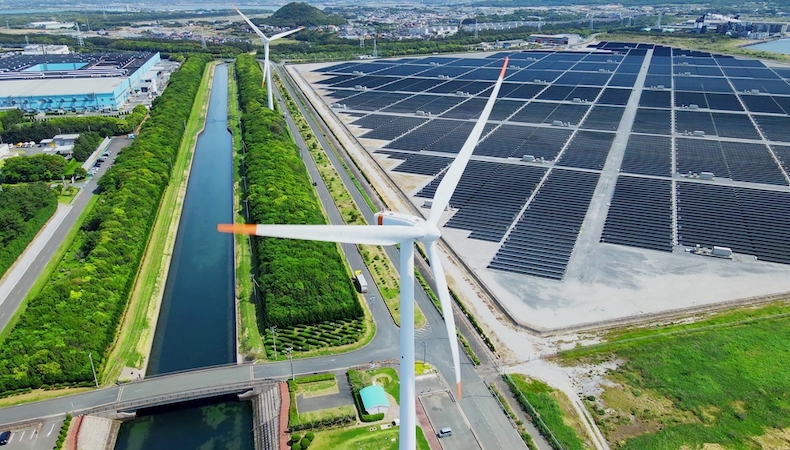Pension savers would pay higher fees for better ESG - survey
In one of the toughest economic climates in decades, UK workers might be forgiven for being wary of having to pay more for anything.
But most DC pension savers would be prepared to pay higher fees to see their pension funds supporting ‘green’ initiatives, according to latest research by Legal & General Investment Management (LGIM).
In this year’s investigation into the ESG (environmental social and governance) views of its DC pension members, LGIM found that most would pay more for investments which could make them less vulnerable to long-term financial risks.
For instance, of the 3,634 DC pension members interviewed in the UK, 65% said the rise in petrol, gas and oil prices had made them more interested in replacing oil and coal with sustainable energy sources such as wind or solar farms.
And an even higher number (74%) said that rising food prices had made them think more about how food could be sustainably produced. Women were the most interested in this at 78%, compared with 71% of men.
The general willingness to pay higher fees to invest their pension funds in ESG initiatives is particularly noteworthy given the economic circumstances under which our respondents were surveyed.
The survey was completed in June 2023, just months after the Office for National Statistics estimated that consumer price inflation was the highest in more than 40 years.
ESG support is not universal
By no means all DC pension savers support investing in funds which support ESG objectives. However, the respondents were generally prepared to consider these issues for their long-term investment strategies.
Despite their own financial troubles, most (80%) of LGIM’s DC savers want to see action to tackle climate change. Many (71%) worry that climate change will push up prices even further with women particularly concerned (76% compared with 68% of men).
With more of LGIM’s DC members than ever saying they’re familiar with the term ‘net zero’ in relation to climate change, (85%), around six in 10 (58%) say they’d be prepared to pay more in fees for a pension with net-zero targets.
But while a hard core of DC savers might be sanguine about the effect on their savings, most respondents waver in their support.
For example, despite 72% of savers supporting investments in infrastructure projects to increase renewable energy sources such as wind farms or solar parks, well over half (56%) would only back paying higher fees if there was no long-term impact on their pension pots.
As many more start to connect the dots between financial risks and poor ESG practices, this picture could well change. But, for now, especially in these tough economic times, there remains an element of caution around anything that might affect long-term pension performance.
While it’s encouraging that most expect funds with net-zero targets and which invest in green finance to do financially better than those without these targets/green investments, (55% think funds with net-zero targets will do better, 57% think green finance investments will do better) around 20% remain to be convinced (19% think funds with net-zero targets will do worse, while 17% think green finance investments will do worse).
Appreciating the power of pensions
The numbers who wish to avoid investing in companies with bad practices is down on last year from 39% in 2022 to 32% in 2023.
Instead, LGIM’s DC members would increasingly prefer to engage with these businesses to encourage them to change for the better (68% would prefer to engage compared with 61% last time we asked).
However, when it comes to poor social practices such as modern slavery, 43% still prefer asset managers to avoid investing their pension funds in companies exhibiting poor behaviour in this area – and not even attempt to engage with them on the issue.
It seems that despite the tough financial climate, DC pension savers are still thinking about the effect of that other big climate issue – global warming – and a range of additional ESG factors as they consider their pension fund investments.
While nine in 10 of those interviewed have felt the effects of the cost-of-living crisis, rising prices appear to have made them think harder about issues that may threaten long-term economic stability and are concluding it probably makes sense to invest in schemes and businesses that aim to help mitigate the risks of ESG mismanagement.
Legal & General Investment Management (LGIM) survey in June 2023 of the views of 4,678 defined contribution workplace pension savers on environment, social and governance investing. Respondents were split across generations and genders and across the UK and Ireland. This article refers to UK data only.
Supplied by REBA Associate Member, Legal & General
Legal & General Investment Management is one of Europe’s largest asset managers, offering investment solutions to a broad range of clients globally.








